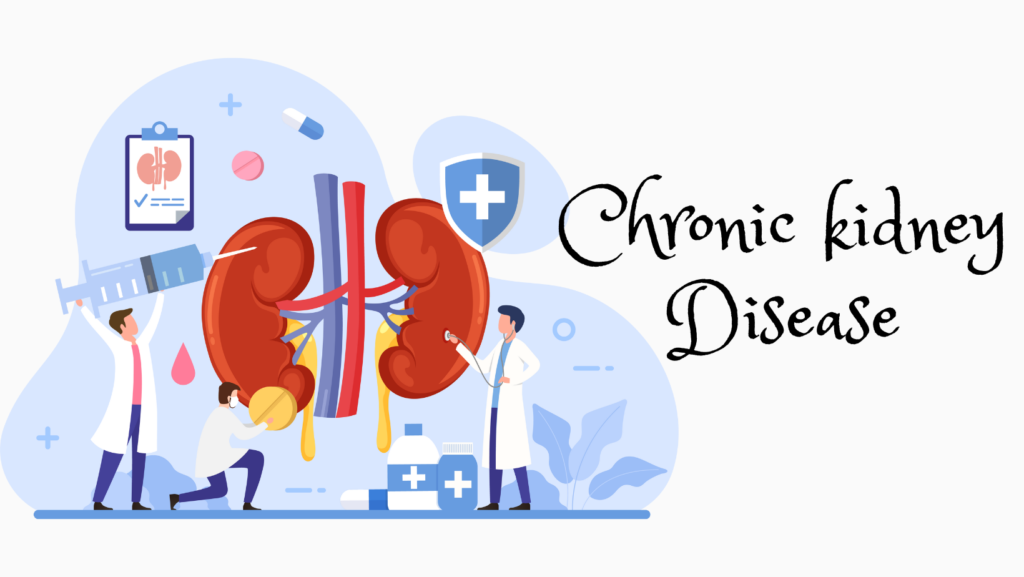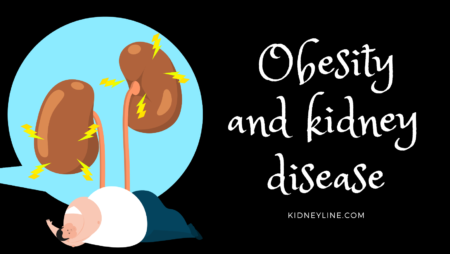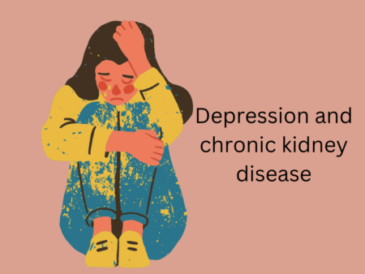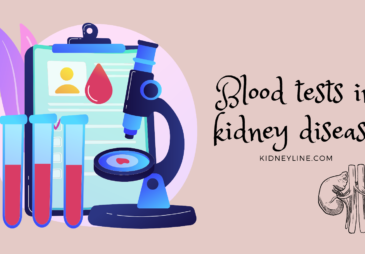Obesity has become a worldwide concern and has been projected to grow by 40% in the next decade. This increase has implications for the risk of diabetes, cardiovascular disease, and kidney disease.
Key takeaways
- Yes, obesity can increase the risk of kidney disease. Obesity causes changes in the structure and function of the kidneys, such as increased pressure in trying to filter waste. These changes can contribute to kidney damage over time.
- Obesity is also linked to other conditions like type 2 diabetes and hypertension (high blood pressure). Both of which are major causes of kidney disease.
- Maintaining a healthy weight through a balanced diet and physical activity is important for maintaining kidney health.
Introduction
According to the World Health Organization, obesity is now a global concern. At least 2.8 million people die each year as a result of being obese. This was once associated with high-income countries but obesity is now also common in low- and middle-income countries. [1]
Obesity means when someone has excess body fat or a body mass index (BMI) of over 30. BMI is used to determine if you are underweight, healthy, overweight, or obese. While a certain amount of body fat is necessary for energy, too much can be harmful.
Now, you might wonder how being obese relates to kidney disease. Well, this article aims to answer the question.
How does obesity cause kidney disease?
Kidney disease is when your kidneys are damaged and can’t do their job of filtering your blood properly. Obesity, on the other hand, means when you have excess body fat. Which increases your chance of developing diabetes and high blood pressure. These two conditions are the most common causes of kidney disease.
However, even if you don’t have diabetes or high blood pressure, being obese on its own can lead to kidney disease. How does this happen?
Obesity is associated with metabolic abnormalities, such as insulin resistance, abnormal fat metabolism, and increased production of insulin (a hormone that helps regulate blood sugar levels). These factors are known to contribute to chronic inflammation, oxidative stress, and damage to the kidney tissues.[2]
These changes can also harm the small blood vessels in the kidneys and affect their ability to filter waste products and excess fluid from the blood. Over time, this can result in kidney damage and a decrease in kidney function.
Adipose tissue (fat tissues) is also known to produce hormones and other substances that can have direct effects on kidney function. For example, adiponectin is an adipose tissue hormone that has anti-inflammatory and protective effects on the kidneys.
In obesity, adiponectin levels may be reduced, leading to increased inflammation and kidney damage. Leptin is another hormone produced by fat tissue and can contribute to kidney inflammation and fibrosis (scarring). [2],[3]
Furthermore, obesity is associated with an increased risk of developing kidney stones. Higher body weight can lead to changes in your urine, such as increased levels of substances like oxalate, uric acid, sodium, and phosphate, which can contribute to the formation of kidney stones.[2]
According to research the risk of kidney cancer in obese people is not fully understood. However, it may be related to factors such as insulin resistance, chronic hyperinsulinemia (high insulin levels), and the effects of adipose tissue on immune function and inflammation.[2]

How does obesity-related kidney disease manifest?
Obesity-related kidney disease can manifest in several ways such as:
Proteinuria
Proteinuria is the presence of excess protein in the urine. In obesity-related kidney disease, the kidneys may not properly filter and retain protein. This can lead to its excretion in the urine. Proteinuria is an early sign of kidney damage and can progress to more severe kidney problems if left untreated.[4]
Glomerular hyperfiltration
Obesity can cause an increase in the glomerular filtration rate (GFR). This is the rate at which blood is filtered by the kidneys. Glomerular hyperfiltration refers to an abnormally high GFR. Over time, this increased workload on the kidneys can lead to kidney damage and dysfunction.[5]
Hypertension
Obesity is strongly associated with hypertension (high blood pressure). This can contribute to kidney damage. High blood pressure can damage the blood vessels in the kidneys, impairing their ability to effectively filter waste products from the blood.[6]
Chronic kidney disease (CKD)
CKD is characterized by a gradual loss of kidney function over time. As the kidneys become less able to perform their functions, it can lead to complications such as fluid retention, electrolyte imbalances, and accumulation of waste products in the blood.[2]
End-stage renal disease (ESRD)
In advanced cases, the kidneys may eventually reach end-stage renal disease. This is the final stage of kidney failure, where the kidneys are no longer able to function At this point, kidney function replacement therapies such as dialysis or kidney transplantation may be necessary.[2]

How to care for your kidney
These tips will help you prevent kidney disease. If you have already been diagnosed with kidney disease, it’s important to follow the guidance provided by your doctor.[7]
Eating lots of fruit and vegetables: A balanced diet with fruits and vegetables helps maintain your blood pressure, and cholesterol at healthy levels and also reduces the risk of kidney disease.
Quit smoking: Smokers are four times more at risk of developing kidney failure than non-smokers. Smoking also doubles your chances of kidney cancer. But quitting helps you reduce all these risks.
Reducing salt intake: High-salt diets contribute to high blood pressure and kidney disease. Limit salt consumption to 6g per day to lower these risks.
Drinking alcohol in moderation: Excessive alcohol consumption raises blood pressure and cholesterol levels, increasing the risk of kidney disease. Limit alcohol intake to 14 units per week.
Avoiding over-the-counter painkillers: Long-term and high-dose use of painkillers like aspirin and ibuprofen can damage the kidneys. Use them only when prescribed by a doctor.
Engage in physical activities: Regular physical activity supports overall health, including kidney health. Aim for at least 150 minutes of moderate exercise or 75 minutes of vigorous activity per week.
Reduce the consumption of over-processed food: These foods are high in sugar, salt, and additives increasing the risk of chronic kidney disease (CKD). Opt for fresh, less-processed foods instead.
Staying hydrated: Drinking fluids helps flush out substances that can lead to kidney stones and urinary tract infections. Aim for six to eight glasses of water or other fluids daily.
Cutting down on sugar: Excess sugar consumption can also contribute to weight gain and increase the risk of conditions like high blood pressure and diabetes, which can affect the kidneys.
Making time for sleep: Adequate sleep allows the body to rest and repair, supporting kidney function. Aim for seven to eight hours of sleep each night for optimal health.
Conclusion
It is important to consult with a doctor for regular medical check-ups. Also, try to maintain a healthy weight, eat a balanced diet, engage in regular physical activity, and manage conditions like hypertension and diabetes as all these can play significant roles in preventing and managing kidney disease related to obesity.
FAQs
- How does obesity contribute to kidney disease?
Obesity can increase the risk of developing conditions such as hypertension (high blood pressure) and type 2 diabetes, both of which are leading causes of kidney disease.
- Can weight loss help improve kidney function in individuals with obesity-related kidney disease?
Yes, weight loss and adopting a healthier lifestyle can have positive effects on kidney function. Losing weight through a combination of a balanced diet and regular exercise can help reduce the risk associated with kidney disease.
- World Health Organization (2021) Obesity
- Kovesdy, C, P. et al (2017). Obesity and Kidney Disease: Hidden Consequences of the Epidemic.
- Kotsis, V. et al (2021). Impact of Obesity in Kidney Diseases.
- Haider MZ, Aslam A. (2023) Proteinuria.
- Helal, I., et al (2012). Glomerular hyperfiltration: definitions, mechanisms and clinical implications.
- World Health Organization (2023). Hypertension
Kidney Care UK (2023) 10 healthy habits for happy kidneys




